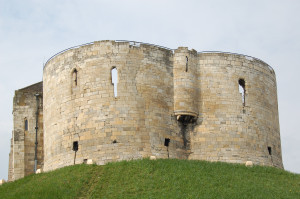King Edward and the Jews
One of the characters in my books who has been very well-received is Mordecai, a surgeon who begins as an antagonist and turns into Elisha’s mentor. But his presence in this world at all needs a little explanation. . .you see, the books are set in 1347, but Edward Longshanks expelled the Jews from England in 1290.
Edward I is known, even renowned, for his prowess as a warrior and war-leader, a proper king in the medieval tradition. Then, as now, war was an expensive proposition, especially if you wanted to wage it on several fronts, say, in Scotland as well as pressing your claims against France. Where to get that money? Taxes are nice, but not always sufficient, and there is the bother of collecting them. How about a loan instead? During the Middle Ages, Christians were not allowed, by Church law, to collect interest on loans to other Christians, so this dubious role fell upon the Jews. Frequently merchants and skilled craftsmen, the Jews thus also became bankers for a large number of Christians, and, in a roundabout way, Christian monarchs.
Clifford’s Tower in York, site of a notorious massacre of Jews in 1190
William the Conqueror had established the feudal system of allegiances when he took over England, but the Jews were exempted, owing their allegiance directly to the crown. This was a relatively common arrangement and sometimes served to protect Jews from the anger of Christians because attacking them meant attacking the king. In Avignon, the popes served in a similar function, and sometimes used it to defend the Jews against the outlandish accusations that arose during difficult times, like the Great Mortality (the Black Death, as we know it). However, the Jews received interest from their Christian clients, and the king could selectively tax the Jews at a higher rate to seize that money for his own needs.
And here is the tragic heart of so much of that anger against the Jews. . .nobody likes the guy who holds the purse strings. Jews were decried for the very role that Church law pushed them into, that of usury. Among the many deep and deadly roots of antisemitism is simple economics. Medieval attitudes toward Jews still persist today–I’m not going to dignify them with enumeration.
In the case of King Edward I of England, his wars began to strain his finances. He wanted to raise taxes from his nobles, and essentially bargained away the Jews–expelling them from England, as he had during his earlier conquest of Gascony, and seizing their property–gaining wealth and gaining the favor of his subjects who resented the Jewish community.
While the Jews were not officially permitted to return to England until 1657, there is some evidence that they had begun filtering back. I imagine Mordecai to be one of these quiet, individual migrants. Under the burden of his own grief, Mordecai has ceased to be concerned about what happens to him–until Elisha’s example shows him another way to cope.
One of the reasons I wanted to write these books was the number of times, in my historical research, that I read of witches, Jews and homosexuals being treated together with heretics, and subjected to any number of injustices as a result. I wanted to look at the layers of prejudice built up in the society at the time–and perhaps to consider how those prejudices remain, even today. I am disturbed by the apparent rise in anti-Semitic crime and commentary–and by the fact that its roots lie in weary rumor and in doctrines laid out centuries before. Some parts of history are meant to be relegated to the scrap heap of time.





